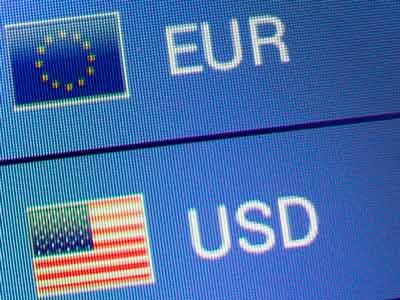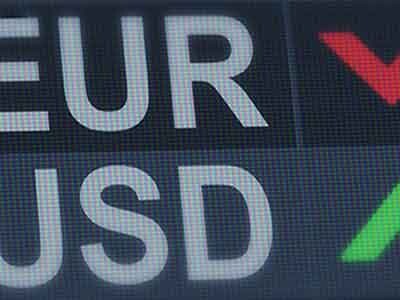Focus on Germany: ZEW Sentiment index and expectations
Today, the key event on the European macroeconomic agenda will be the publication of the ZEW index of economic sentiment for Germany for March. According to the consensus forecast, the index value may drop significantly to 9.5 points, which is likely due to the ongoing turbulence in global trade and weak readings of economic indicators in the region. Recall that in February, the indicator of current economic conditions unexpectedly rose to 51.6 after a January jump from 26.0, ending a six-month downward trend. This time, the market expects only a slight improvement in the current estimate, to -86.8 from -87.6 last month.
Sweden's spring budget: no market effect
In Sweden, the spring revision of the state budget will be presented at 8:00 Central European time. The main parameters of the project are already known: the volume of reforms is 11.5 billion crowns, while the central initiative will be the extension of tax benefits for housing repairs. Earlier in March, the government announced plans for a long-term increase in defense spending, but the final targets for them will be formed only in June, after the NATO summit, and they will not be included in the current budget version. For this reason, the impact of the document on financial markets will be minimal.
United Kingdom: labor market data
At 8:00 a.m., the UK will publish the employment report for February-March. Although this event traditionally has an impact on the pound, the current market agenda is focused on trade conflicts and interest rate policy, so the reaction to the publication may be limited.
Overall market picture: cautious optimism amid tariff uncertainty
The main attention of market participants remains focused on the escalation of tariff disputes. In the United States, Fed member Christopher Waller made a mild comment, noting that in the face of a significant slowdown in the economy due to high tariffs, he would support an earlier and large-scale rate cut. His words are especially important, given that Waller often reflects a consensus opinion within the FOMC.
In China, exports increased by 12.4% YoY in March, significantly exceeding expectations (4.4%). However, given the upcoming tariff policy changes, these data are temporary. In April, we can expect a sharp decline in shipments, especially towards the United States. Against this background, the global trade picture remains uncertain.
Financial markets: cautious recovery in risk appetite
Stocks on global markets showed growth on Monday amid hopes that the peak of the tariff war may have already passed. European securities outperformed American ones, and defensive sectors outperformed cyclical ones in terms of profitability for the third day in a row – a clear signal that investors are becoming more selective and are beginning to take into account structural risks.
On Wall Street, all key indexes closed in positive territory: The Dow Jones and S&P 500 gained 0.8% each, the Nasdaq 0.6%, and the Russell 2000 1.1%. Positive sentiment prevailed in Asia on Tuesday, with European futures also showing growth.
Dollar, Euro and yields: EUR/USD recovery
After falling to the level of 1.1300, the EUR/USD currency pair regained momentum amid easing concerns about the recession in the United States and signs of flexibility in the tariff policy of the White House. The Norwegian krone and the British pound also showed growth following the stock indexes. In Europe, yields on two-year swaps dropped below 2%, reflecting a general shift towards a soft policy. US government bond yields also declined, partly due to Waller's comments, which focused on the possible reaction of the Fed in the event of a slowdown in the labor market.
Today, special attention will be paid to the "tax day" in the United States – the date when the maximum inflow of funds to the budget traditionally occurs, which can affect the short-term liquidity and dynamics of treasury securities.


 FOREX Fundamental analysis for EUR/USD on April 29, 2025An attempt by EUR/USD to overcome resistance at 1.14 failed, despite JP Morgan analysts actively searching for signs of a second wave of dollar weakness. The recovery of US stock indexes after the initial drop and the softening of the White House's rhetoric on trade issues created temporary support for the greenback.Investors continue to believe in a "lifeline" from the authorities, be it the Fed or the Trump administration. After the US president's harsh statements about the need for short-term sacrifices for long-term benefits and the introduction of record tariffs, the S&P 500 really came under pressure, which initially caused capital outflows to Europe and a weakening dollar. However, subsequent signals about a possible easing of car duties and the prospects for extending tax benefits changed the mood.Major financial institutions remain confident in the euro's growth potential. JP Morgan, BNP Paribas and Danske Bank forecast the exchange rate at 1.20 by 2025, noting the exhaustion of the dollar's traditional drivers - immigration growth and fiscal incentives. At the same time, the real yield on treasury bonds is declining against the background of inflationary pressure from tariffs, making American assets less attractive.The ECB expects the new trade barriers to add 0.7 percentage points to inflation in 2025, preventing the risk of deflation. Paradoxically, this may create favorable conditions for the euro, as modern exchange rates are increasingly determined by capital flows rather than traditional monetary factors.In the current conditions, buying EUR/USD on corrections with targets of 1.16 and 1.195 looks reasonable. The market has already moved from parity expectations to forecasts of a significant strengthening of the euro, which, however, may create problems for the export-oriented economy of the eurozone.
FOREX Fundamental analysis for EUR/USD on April 29, 2025An attempt by EUR/USD to overcome resistance at 1.14 failed, despite JP Morgan analysts actively searching for signs of a second wave of dollar weakness. The recovery of US stock indexes after the initial drop and the softening of the White House's rhetoric on trade issues created temporary support for the greenback.Investors continue to believe in a "lifeline" from the authorities, be it the Fed or the Trump administration. After the US president's harsh statements about the need for short-term sacrifices for long-term benefits and the introduction of record tariffs, the S&P 500 really came under pressure, which initially caused capital outflows to Europe and a weakening dollar. However, subsequent signals about a possible easing of car duties and the prospects for extending tax benefits changed the mood.Major financial institutions remain confident in the euro's growth potential. JP Morgan, BNP Paribas and Danske Bank forecast the exchange rate at 1.20 by 2025, noting the exhaustion of the dollar's traditional drivers - immigration growth and fiscal incentives. At the same time, the real yield on treasury bonds is declining against the background of inflationary pressure from tariffs, making American assets less attractive.The ECB expects the new trade barriers to add 0.7 percentage points to inflation in 2025, preventing the risk of deflation. Paradoxically, this may create favorable conditions for the euro, as modern exchange rates are increasingly determined by capital flows rather than traditional monetary factors.In the current conditions, buying EUR/USD on corrections with targets of 1.16 and 1.195 looks reasonable. The market has already moved from parity expectations to forecasts of a significant strengthening of the euro, which, however, may create problems for the export-oriented economy of the eurozone.  USA: awaiting reports on the labor market and consumer sentimentTwo important macroeconomic reports will be released in the United States today — the March JOLTs on hiring dynamics and the April consumer confidence index from the Conference Board. Job vacancy data is a key indicator of the state of labor demand for the Fed. Despite the uncertainty caused by the tariff policy, stable data on daily job advertisements suggest that demand remains at an acceptable level.The Eurozone: Spanish inflation and business activityOn European platforms, attention will be focused on the publication of inflation data in Spain for April. This release precedes the general report on inflation in the eurozone, which will be released on Friday. The HICP index is expected to slow growth from 2.2% to 2.1% in annual terms.Of additional interest are data on lending and business sentiment in the eurozone for April, which will be able to reflect the first effects of the new US tariffs.China: expectation of a decline in manufacturing activityIn Asia, the PMI indices for April from NBS and private Caixin will be published. According to expectations, both indicators will show a decline, confirming the negative impact of the ongoing trade war. The previously published Emerging Industries PMI dropped sharply from 59.6 to 49.4 points.Sweden: macroeconomic releases and growth prospectsSwedish statistics today are rich in publications. At 08:00 CET, reports on retail sales and consumer lending for March are expected. The GDP indicator for the first quarter will attract special attention, however, due to its volatility, analysts prefer the NIER economic sentiment index, which will be released at 09:00 CET. Its further decline may signal a slowdown in the Swedish economy.Norway: retail sales remain questionableRetail sales statistics for March will be published in Norway. Despite the global instability, it is unlikely to be reflected in these data. Sales growth is forecast to slow to 0.1% month-on-month, although the effect of postponing holidays makes it difficult to assess the real state of consumer activity.Economic and market news: key eventsCanadian Elections: liberal victoryIn the last parliamentary elections in Canada, the Liberal Party under the leadership of Mark Carney retained power. Although the results had not yet provided them with a full majority in parliament at the time of publication, the victory marks the restoration of the party's position after the resignation of Justin Trudeau. Carney relied on his reputation, formed during the crisis of 2008 and the Brexit process.Macroeconomic data from Denmark, Sweden and NorwayIn Denmark, retail sales in March unexpectedly decreased by 0.1% compared to February, mainly due to lower food costs. However, clothing sales increased by 2.7%.In Sweden, the producer price index decreased for the second month in a row (-3.0% mom, -0.3% YoY), which reduces inflation risks and supports the Riksbank's position.In Norway, the unemployment rate rose to 4.4% in March, but the adjusted data remained unchanged at 4.1%. More recent unemployment statistics will be published on Friday.Geopolitics: the Truce in UkraineRussian President Vladimir Putin announced a three-day truce from May 8-10 in honor of the anniversary of the end of World War II, inviting world leaders to events. Ukraine has criticized, insisting on the need for an immediate and full-fledged ceasefire. The White House supported the idea of a truce, but stressed that the goal should be a long-term peace initiative.Stock markets: stabilization and local successesThe trading session in the American markets passed without significant changes, while the European indices showed growth: the Stoxx 600 added 0.5%. Shares of companies in defensive sectors such as real estate, utilities and healthcare rose against the background of lower bond yields. The VIX volatility index has stabilized around 25 points, which may indicate prolonged uncertainty due to tariff policy.Debt and currency markets: declining yields in the United StatesAt the start of the week, US Treasury bonds continued to rise in price: the yield on 2-year securities decreased by 6 basis points, 10-year — by 3 bps, and 30-year— by 2 bps. European yields, on the contrary, rose slightly. The EUR/USD pair remained stable in the range of 1.13–1.14. The victory of the liberals in Canada led to a moderate strengthening of the Canadian dollar, and a further decline in the USD/CAD pair is expected to reach 1.37. The Norwegian krone also showed good results at the end of yesterday's session.
USA: awaiting reports on the labor market and consumer sentimentTwo important macroeconomic reports will be released in the United States today — the March JOLTs on hiring dynamics and the April consumer confidence index from the Conference Board. Job vacancy data is a key indicator of the state of labor demand for the Fed. Despite the uncertainty caused by the tariff policy, stable data on daily job advertisements suggest that demand remains at an acceptable level.The Eurozone: Spanish inflation and business activityOn European platforms, attention will be focused on the publication of inflation data in Spain for April. This release precedes the general report on inflation in the eurozone, which will be released on Friday. The HICP index is expected to slow growth from 2.2% to 2.1% in annual terms.Of additional interest are data on lending and business sentiment in the eurozone for April, which will be able to reflect the first effects of the new US tariffs.China: expectation of a decline in manufacturing activityIn Asia, the PMI indices for April from NBS and private Caixin will be published. According to expectations, both indicators will show a decline, confirming the negative impact of the ongoing trade war. The previously published Emerging Industries PMI dropped sharply from 59.6 to 49.4 points.Sweden: macroeconomic releases and growth prospectsSwedish statistics today are rich in publications. At 08:00 CET, reports on retail sales and consumer lending for March are expected. The GDP indicator for the first quarter will attract special attention, however, due to its volatility, analysts prefer the NIER economic sentiment index, which will be released at 09:00 CET. Its further decline may signal a slowdown in the Swedish economy.Norway: retail sales remain questionableRetail sales statistics for March will be published in Norway. Despite the global instability, it is unlikely to be reflected in these data. Sales growth is forecast to slow to 0.1% month-on-month, although the effect of postponing holidays makes it difficult to assess the real state of consumer activity.Economic and market news: key eventsCanadian Elections: liberal victoryIn the last parliamentary elections in Canada, the Liberal Party under the leadership of Mark Carney retained power. Although the results had not yet provided them with a full majority in parliament at the time of publication, the victory marks the restoration of the party's position after the resignation of Justin Trudeau. Carney relied on his reputation, formed during the crisis of 2008 and the Brexit process.Macroeconomic data from Denmark, Sweden and NorwayIn Denmark, retail sales in March unexpectedly decreased by 0.1% compared to February, mainly due to lower food costs. However, clothing sales increased by 2.7%.In Sweden, the producer price index decreased for the second month in a row (-3.0% mom, -0.3% YoY), which reduces inflation risks and supports the Riksbank's position.In Norway, the unemployment rate rose to 4.4% in March, but the adjusted data remained unchanged at 4.1%. More recent unemployment statistics will be published on Friday.Geopolitics: the Truce in UkraineRussian President Vladimir Putin announced a three-day truce from May 8-10 in honor of the anniversary of the end of World War II, inviting world leaders to events. Ukraine has criticized, insisting on the need for an immediate and full-fledged ceasefire. The White House supported the idea of a truce, but stressed that the goal should be a long-term peace initiative.Stock markets: stabilization and local successesThe trading session in the American markets passed without significant changes, while the European indices showed growth: the Stoxx 600 added 0.5%. Shares of companies in defensive sectors such as real estate, utilities and healthcare rose against the background of lower bond yields. The VIX volatility index has stabilized around 25 points, which may indicate prolonged uncertainty due to tariff policy.Debt and currency markets: declining yields in the United StatesAt the start of the week, US Treasury bonds continued to rise in price: the yield on 2-year securities decreased by 6 basis points, 10-year — by 3 bps, and 30-year— by 2 bps. European yields, on the contrary, rose slightly. The EUR/USD pair remained stable in the range of 1.13–1.14. The victory of the liberals in Canada led to a moderate strengthening of the Canadian dollar, and a further decline in the USD/CAD pair is expected to reach 1.37. The Norwegian krone also showed good results at the end of yesterday's session.  AUD/USD analysis on April 28, 2025The Australian dollar is showing moderate growth against the US dollar at the beginning of the new trading week, consolidating near the level of 0.6390. The dynamics in the market remains restrained, as participants prefer to wait for the emergence of new factors that can set the direction of price movement. Today, investors' attention will be focused on the publication of the April industrial PMI from the Federal Reserve Bank of Dallas, which, according to expectations, will remain in the negative zone at -16.3 points.The key event for the Australian dollar will be the publication of inflation data in Australia for the first quarter of 2025. According to forecasts, the annual growth in consumer prices will slow down from 2.4% to 2.2%, while the quarterly figure will increase from 0.2% to 0.8%. A slight correction in the core inflation index from the Reserve Bank of Australia is also expected: a quarterly increase from 0.5% to 0.6% and a decrease in the annual rate from 3.2% to 3.0%. If the actual data exceeds expectations, this may reduce the likelihood of further monetary easing in the country, especially against the background of ongoing uncertainty related to US trade policy.Additional attention will be focused on the publication of the business activity index in China. The manufacturing PMI is forecast to decline from 50.5 to 49.9 points, reflecting weakening activity in the sector. The index in the services and construction sector, calculated by the Chinese Federation of Logistics and Procurement, according to analysts, will decrease slightly from 50.8 to 50.7 points.US data: focus on inflation and employmentImportant macroeconomic indicators from the United States will also be released on Wednesday. ADP company will present a report on employment in the private sector: the rate of job creation is expected to decrease from 155 thousand to 130 thousand. At the same time, investors will receive April data on the core price index of personal consumption expenditures, a key indicator of inflation for the Federal Reserve System. Preliminary estimates indicate a slowdown in the growth rate of the indicator from 0.4% to 0.1%.Comments from the Fed's representatives also affect market expectations. Managing Director Christopher Waller, in an interview with Bloomberg, noted that the impact of the new tariffs on the economy will only manifest itself in the second half of the year. According to him, the duties can help accelerate inflation, while putting pressure on the labor market and slowing economic growth. In turn, the head of the Federal Reserve Bank of Cleveland, Beth Hammack, stressed the need for a cautious approach to monetary policy in an environment of high uncertainty.AUD/USD technical analysis for todayOn the daily chart, the Bollinger bands continue to show growth, while the narrowing of the range indicates a possible transition to a more pronounced movement in the near future. The MACD indicator shows positive dynamics, maintaining a weak buy signal: the histogram remains above the signal line. The stochastic indicator is steadily turning up in the middle zone, which speaks in favor of maintaining the upward momentum on the short-term horizon.Trading RecommendationsSales of the instrument may be justified in the event of a breakdown of the 0.6373 level downwards with a target at 0.6300. It is recommended to set a protective stop-loss order at 0.6408.An alternative scenario assumes a return of steady growth with an upward breakdown of the 0.6438 level, which will pave the way for a move to 0.6500 with a similar stop loss level at 0.6408.
AUD/USD analysis on April 28, 2025The Australian dollar is showing moderate growth against the US dollar at the beginning of the new trading week, consolidating near the level of 0.6390. The dynamics in the market remains restrained, as participants prefer to wait for the emergence of new factors that can set the direction of price movement. Today, investors' attention will be focused on the publication of the April industrial PMI from the Federal Reserve Bank of Dallas, which, according to expectations, will remain in the negative zone at -16.3 points.The key event for the Australian dollar will be the publication of inflation data in Australia for the first quarter of 2025. According to forecasts, the annual growth in consumer prices will slow down from 2.4% to 2.2%, while the quarterly figure will increase from 0.2% to 0.8%. A slight correction in the core inflation index from the Reserve Bank of Australia is also expected: a quarterly increase from 0.5% to 0.6% and a decrease in the annual rate from 3.2% to 3.0%. If the actual data exceeds expectations, this may reduce the likelihood of further monetary easing in the country, especially against the background of ongoing uncertainty related to US trade policy.Additional attention will be focused on the publication of the business activity index in China. The manufacturing PMI is forecast to decline from 50.5 to 49.9 points, reflecting weakening activity in the sector. The index in the services and construction sector, calculated by the Chinese Federation of Logistics and Procurement, according to analysts, will decrease slightly from 50.8 to 50.7 points.US data: focus on inflation and employmentImportant macroeconomic indicators from the United States will also be released on Wednesday. ADP company will present a report on employment in the private sector: the rate of job creation is expected to decrease from 155 thousand to 130 thousand. At the same time, investors will receive April data on the core price index of personal consumption expenditures, a key indicator of inflation for the Federal Reserve System. Preliminary estimates indicate a slowdown in the growth rate of the indicator from 0.4% to 0.1%.Comments from the Fed's representatives also affect market expectations. Managing Director Christopher Waller, in an interview with Bloomberg, noted that the impact of the new tariffs on the economy will only manifest itself in the second half of the year. According to him, the duties can help accelerate inflation, while putting pressure on the labor market and slowing economic growth. In turn, the head of the Federal Reserve Bank of Cleveland, Beth Hammack, stressed the need for a cautious approach to monetary policy in an environment of high uncertainty.AUD/USD technical analysis for todayOn the daily chart, the Bollinger bands continue to show growth, while the narrowing of the range indicates a possible transition to a more pronounced movement in the near future. The MACD indicator shows positive dynamics, maintaining a weak buy signal: the histogram remains above the signal line. The stochastic indicator is steadily turning up in the middle zone, which speaks in favor of maintaining the upward momentum on the short-term horizon.Trading RecommendationsSales of the instrument may be justified in the event of a breakdown of the 0.6373 level downwards with a target at 0.6300. It is recommended to set a protective stop-loss order at 0.6408.An alternative scenario assumes a return of steady growth with an upward breakdown of the 0.6438 level, which will pave the way for a move to 0.6500 with a similar stop loss level at 0.6408.  The beginning of the week promises to be relatively calm on the macroeconomic front. In Denmark, the retail trade index for March will be published today at 08:00 Central European time. According to its own expense monitor, real retail sales decreased by 2.5% year-on-year. However, the decrease is due to the calendar effect: Easter last year fell in March, and this year in April. Seasonally adjusted, real sales increased by 1.8% compared to February, and official statistics are expected to reflect this positive trend.In Sweden, the producer price index for March will be published at the same time. These data, as well as the results of the NIER price Expectations survey published earlier this week, will be important for shaping inflation expectations and, consequently, for further actions by the Riksbank regarding changes in interest rates.Main events of the weekDuring the week, investors' attention will be focused on a variety of key publications. On Wednesday, PMI data from China and a preliminary estimate of US GDP for the first quarter are expected. On Thursday, attention will turn to the Bank of Japan's monetary policy meeting. On Friday, preliminary data on inflation in the eurozone and the US employment report for April will be released.Friday and weekend eventsIn the United States, the University of Michigan consumer sentiment index for April was revised upward to 52.2 points from an initial 50.8. Despite the revision, the index continues to decline for the fourth month in a row and is at its lowest level since July 2022. Uncertainty in trade policy and fears of rising inflation remain the reason for the deterioration in sentiment. Inflation expectations for the year ahead jumped to 6.5%, due to recent tariff initiatives, although the preliminary estimate was even higher — 6.7%.In Japan, Tokyo inflation (excluding fresh produce) accelerated to 3.4% in April, exceeding forecasts. This confirms the existence of stable inflationary pressures. The head of the Bank of Japan, Ueda, confirmed that further rate increases are possible if inflation approaches the target level of 2%. However, he noted that a trade war could weaken inflationary trends. Following this, we expect one of the two planned rate increases to be postponed to the fall and another to the first quarter of 2026.In China, industrial profits increased by 0.8% year-on-year in the first three months of 2025, which is a recovery from the recession at the beginning of the year. At the same time, private sector profits decreased by only 0.3%, which is significantly better than the previous drop of 9%.The US-China Trade War: conflicting signalsDespite President Trump's statements about the ongoing negotiations with Chinese President Xi Jinping, Beijing has denied the fact of such negotiations. The US Treasury Secretary announced cooperation with Chinese representatives at the IMF meetings, but without discussing tariff issues. The Minister of Agriculture, in turn, noted the daily contacts on the topic of tariffs.Geopolitics: the meeting between Trump and ZelenskyIn Rome, as part of the funeral of Pope Francis, the first meeting between Donald Trump and Vladimir Zelensky took place since February. The negotiations were described as "very productive." Trump condemned Russia's recent attacks on civilian facilities in Ukraine and stressed the need to find alternative methods of pressure, including secondary sanctions. At the same time, US Secretary of State Marco Rubio announced the possible curtailment of peace initiatives if Russia and Ukraine do not show progress in negotiations.Greenland and Denmark strengthen their allianceAmid renewed U.S. interest in acquiring Greenland, autonomy's Prime Minister Jens-Frederik Nielsen visited Copenhagen. The meeting with Danish Prime Minister Mette Frederiksen ended with a joint statement of unity: the fate of the island will be decided solely by the Greenlanders.Equity markets: recovery continuesThe past week has brought significant growth in the stock markets: the S&P 500 index has gained 5%, and the European and Scandinavian indexes — about 3%. Cyclical securities grew especially strongly, outperforming defensive assets by more than 5%. On Friday, the growth continued: the S&P 500 gained 0.7%, the Stoxx 600 - 0.4%. Asian markets are showing neutral dynamics this morning, and futures on US indices are slightly declining.Debt and foreign exchange markets: moderate movementsLast week ended with a decline in US government bond yields: yields on 2-year securities fell by 5 basis points, while 10- and 30-year yields fell by 8 points. The yield curve has straightened somewhat. In Europe, yields, on the contrary, rose slightly, despite the soft comments from ECB representatives. In the foreign exchange market, the EUR/USD pair consolidated in the range of 1.13–1.14. The franc and the yen weakened slightly amid an improvement in global risk appetite. This week, the focus will be on data on inflation, GDP and the labor market in the United States and the eurozone, as well as the meeting of the Bank of Japan.
The beginning of the week promises to be relatively calm on the macroeconomic front. In Denmark, the retail trade index for March will be published today at 08:00 Central European time. According to its own expense monitor, real retail sales decreased by 2.5% year-on-year. However, the decrease is due to the calendar effect: Easter last year fell in March, and this year in April. Seasonally adjusted, real sales increased by 1.8% compared to February, and official statistics are expected to reflect this positive trend.In Sweden, the producer price index for March will be published at the same time. These data, as well as the results of the NIER price Expectations survey published earlier this week, will be important for shaping inflation expectations and, consequently, for further actions by the Riksbank regarding changes in interest rates.Main events of the weekDuring the week, investors' attention will be focused on a variety of key publications. On Wednesday, PMI data from China and a preliminary estimate of US GDP for the first quarter are expected. On Thursday, attention will turn to the Bank of Japan's monetary policy meeting. On Friday, preliminary data on inflation in the eurozone and the US employment report for April will be released.Friday and weekend eventsIn the United States, the University of Michigan consumer sentiment index for April was revised upward to 52.2 points from an initial 50.8. Despite the revision, the index continues to decline for the fourth month in a row and is at its lowest level since July 2022. Uncertainty in trade policy and fears of rising inflation remain the reason for the deterioration in sentiment. Inflation expectations for the year ahead jumped to 6.5%, due to recent tariff initiatives, although the preliminary estimate was even higher — 6.7%.In Japan, Tokyo inflation (excluding fresh produce) accelerated to 3.4% in April, exceeding forecasts. This confirms the existence of stable inflationary pressures. The head of the Bank of Japan, Ueda, confirmed that further rate increases are possible if inflation approaches the target level of 2%. However, he noted that a trade war could weaken inflationary trends. Following this, we expect one of the two planned rate increases to be postponed to the fall and another to the first quarter of 2026.In China, industrial profits increased by 0.8% year-on-year in the first three months of 2025, which is a recovery from the recession at the beginning of the year. At the same time, private sector profits decreased by only 0.3%, which is significantly better than the previous drop of 9%.The US-China Trade War: conflicting signalsDespite President Trump's statements about the ongoing negotiations with Chinese President Xi Jinping, Beijing has denied the fact of such negotiations. The US Treasury Secretary announced cooperation with Chinese representatives at the IMF meetings, but without discussing tariff issues. The Minister of Agriculture, in turn, noted the daily contacts on the topic of tariffs.Geopolitics: the meeting between Trump and ZelenskyIn Rome, as part of the funeral of Pope Francis, the first meeting between Donald Trump and Vladimir Zelensky took place since February. The negotiations were described as "very productive." Trump condemned Russia's recent attacks on civilian facilities in Ukraine and stressed the need to find alternative methods of pressure, including secondary sanctions. At the same time, US Secretary of State Marco Rubio announced the possible curtailment of peace initiatives if Russia and Ukraine do not show progress in negotiations.Greenland and Denmark strengthen their allianceAmid renewed U.S. interest in acquiring Greenland, autonomy's Prime Minister Jens-Frederik Nielsen visited Copenhagen. The meeting with Danish Prime Minister Mette Frederiksen ended with a joint statement of unity: the fate of the island will be decided solely by the Greenlanders.Equity markets: recovery continuesThe past week has brought significant growth in the stock markets: the S&P 500 index has gained 5%, and the European and Scandinavian indexes — about 3%. Cyclical securities grew especially strongly, outperforming defensive assets by more than 5%. On Friday, the growth continued: the S&P 500 gained 0.7%, the Stoxx 600 - 0.4%. Asian markets are showing neutral dynamics this morning, and futures on US indices are slightly declining.Debt and foreign exchange markets: moderate movementsLast week ended with a decline in US government bond yields: yields on 2-year securities fell by 5 basis points, while 10- and 30-year yields fell by 8 points. The yield curve has straightened somewhat. In Europe, yields, on the contrary, rose slightly, despite the soft comments from ECB representatives. In the foreign exchange market, the EUR/USD pair consolidated in the range of 1.13–1.14. The franc and the yen weakened slightly amid an improvement in global risk appetite. This week, the focus will be on data on inflation, GDP and the labor market in the United States and the eurozone, as well as the meeting of the Bank of Japan.  FOREX Fundamental analysis for EUR/USD on April 28, 2025At first glance, there is a contradictory picture: despite the impressive recovery after the April downturn in American stocks, the EUR/USD pair is showing amazing resilience. It would seem that the traditional inverse correlation between the dollar and stock indexes should have led to a deeper correction of the euro. However, an analysis of market mechanisms shows that the situation is more complicated than it seems on the surface.For many years, foreign investors have used a proven scheme: buying dollars and then investing in American stocks. This strategy brought double benefits - both due to the strengthening of the dollar and due to the growth of the S&P 500. However, the return of Donald Trump to the White House has radically changed the rules of the game.The historic drop in the dollar index in the first 100 days of the new presidential term (worse even than in 1973 under Nixon) forced investors to reconsider their approaches. According to Bloomberg, the introduction of new tariffs could slow the growth of the American economy to 1.4% in 2025, and the probability of a recession in the coming year is estimated at 45%.The revival of hedgingThe current situation has led to the renewed popularity of currency risk hedging. Major banks, including Morgan Stanley and Bank of America, are recording the growing customer demand for such operations. This creates additional pressure on the dollar, explaining the stability of EUR/USD even amid the growth of American stocks.Key factors to watch out forIn the near future, special attention should be paid to:- Dynamics of US GDP (possible slowdown from 2.4% to 0.4%)- The state of the labor market (risks of reducing the pace of job creation)- The Fed's response to changing economic conditionsEUR/USD Trade ProspectsThe current situation offers two possible scenarios:1. Buying EUR/USD when the resistance breaks 1.14002. Selling the pair from the 1.1310 level with a possible reversal when testing key supportsConclusionThe stability of EUR/USD reflects profound changes in the structure of global financial flows. The dollar found itself in a difficult position - between the risk of weakening if stocks continue to rise and the threat of new shocks in the event of an escalation of trade conflicts. Investors should prepare for periods of increased volatility in the foreign exchange market.
FOREX Fundamental analysis for EUR/USD on April 28, 2025At first glance, there is a contradictory picture: despite the impressive recovery after the April downturn in American stocks, the EUR/USD pair is showing amazing resilience. It would seem that the traditional inverse correlation between the dollar and stock indexes should have led to a deeper correction of the euro. However, an analysis of market mechanisms shows that the situation is more complicated than it seems on the surface.For many years, foreign investors have used a proven scheme: buying dollars and then investing in American stocks. This strategy brought double benefits - both due to the strengthening of the dollar and due to the growth of the S&P 500. However, the return of Donald Trump to the White House has radically changed the rules of the game.The historic drop in the dollar index in the first 100 days of the new presidential term (worse even than in 1973 under Nixon) forced investors to reconsider their approaches. According to Bloomberg, the introduction of new tariffs could slow the growth of the American economy to 1.4% in 2025, and the probability of a recession in the coming year is estimated at 45%.The revival of hedgingThe current situation has led to the renewed popularity of currency risk hedging. Major banks, including Morgan Stanley and Bank of America, are recording the growing customer demand for such operations. This creates additional pressure on the dollar, explaining the stability of EUR/USD even amid the growth of American stocks.Key factors to watch out forIn the near future, special attention should be paid to:- Dynamics of US GDP (possible slowdown from 2.4% to 0.4%)- The state of the labor market (risks of reducing the pace of job creation)- The Fed's response to changing economic conditionsEUR/USD Trade ProspectsThe current situation offers two possible scenarios:1. Buying EUR/USD when the resistance breaks 1.14002. Selling the pair from the 1.1310 level with a possible reversal when testing key supportsConclusionThe stability of EUR/USD reflects profound changes in the structure of global financial flows. The dollar found itself in a difficult position - between the risk of weakening if stocks continue to rise and the threat of new shocks in the event of an escalation of trade conflicts. Investors should prepare for periods of increased volatility in the foreign exchange market.  The EUR/GBP pair shows uncertain dynamics during the morning session, hovering near the level of 0.8530. The lack of a clear trend is explained by a balanced macroeconomic background, where positive data from the UK is offset by cautious optimism in the eurozone.The March statistics on British consumption exceeded expectations- Annual retail sales growth accelerated to 2.6% (1.8% forecast)- The base indicator (excluding fuel) increased by 3.3% year-on-yearHowever, the April Gfk consumer confidence index deteriorated to -23 points, indicating continued household concerns. The CBI's industrial orders data (-26 points) turned out to be better than expected, but export orders fell to their lowest level since September, reflecting the pressure of global trade risks.German business sentiment (IFO index) showed resilience- The current situation index rose to 86.4 points- The business climate improved to 86.9 pointsAt the same time, the IFO president warned of growing uncertainty among companies due to US tariffs. Comments by ECB representative Claes Noth highlighted the risks of slowing inflation, but retained the possibility of its acceleration in the medium term.EUR/GBP technical analysis for today- Bollinger bands signal a potential downward reversal- The MACD retains a bearish signal- The stochastic oscillator indicator in the oversold zone may limit further declineTrading recommendations- Short positions at the breakdown of 0.8519 with a target of 0.8465 (stop loss of 0.8546)- Purchases on the rebound from 0.8519 and growth above 0.8546 with a target of 0.8601 (stop loss 0.8519)
The EUR/GBP pair shows uncertain dynamics during the morning session, hovering near the level of 0.8530. The lack of a clear trend is explained by a balanced macroeconomic background, where positive data from the UK is offset by cautious optimism in the eurozone.The March statistics on British consumption exceeded expectations- Annual retail sales growth accelerated to 2.6% (1.8% forecast)- The base indicator (excluding fuel) increased by 3.3% year-on-yearHowever, the April Gfk consumer confidence index deteriorated to -23 points, indicating continued household concerns. The CBI's industrial orders data (-26 points) turned out to be better than expected, but export orders fell to their lowest level since September, reflecting the pressure of global trade risks.German business sentiment (IFO index) showed resilience- The current situation index rose to 86.4 points- The business climate improved to 86.9 pointsAt the same time, the IFO president warned of growing uncertainty among companies due to US tariffs. Comments by ECB representative Claes Noth highlighted the risks of slowing inflation, but retained the possibility of its acceleration in the medium term.EUR/GBP technical analysis for today- Bollinger bands signal a potential downward reversal- The MACD retains a bearish signal- The stochastic oscillator indicator in the oversold zone may limit further declineTrading recommendations- Short positions at the breakdown of 0.8519 with a target of 0.8465 (stop loss of 0.8546)- Purchases on the rebound from 0.8519 and growth above 0.8546 with a target of 0.8601 (stop loss 0.8519)  The week ends with a fairly modest volume of macroeconomic statistics, and investors' main attention is focused on the revised University of Michigan consumer sentiment data for April. The preliminary estimate has already alarmed the markets due to a new surge in inflation expectations, which increases uncertainty about the trajectory of interest rates in the United States.Inflationary signals from JapanThe published inflation data in Tokyo for April exceeded expectations: the overall indicator accelerated to 3.5% in annual terms (the previous value was 2.9%), and core inflation rose to 3.4% (against the forecast of 3.2%). The main reason was the rise in prices for a wide range of goods and services. The beginning of a new fiscal year in Japan is traditionally accompanied by a review of companies' pricing policies, and this year rising costs have become the main reason for the increase in consumer prices. Taking into account the expected acceleration of wages, the Bank of Japan is likely to continue its course towards a gradual normalization of monetary policy, unless trade restrictions from the United States turn out to be critical.US data: short-term surge in ordersIn the United States, data on durable goods orders for March turned out to be significantly higher than expected, with an increase of 9.2% compared with a forecast of 2.0%. However, such a strong result is largely due to temporary factors, in particular, a sharp increase in aircraft orders (primarily Boeing). Excluding the aviation sector, the growth in orders was minimal, which caused a weak market reaction.Comments from the Fed representativesThe speeches of representatives of the Federal Reserve System demonstrated a divergence of opinion. The head of the Federal Reserve Bank of Cleveland spoke out with harsh rhetoric, insisting on a wait-and-see attitude regarding the impact of duties on the economy. At the same time, Christopher Waller, a member of the Fed's Board of Governors, took a softer stance, not ruling out an increase in unemployment. Neel Kashkari, who heads the Federal Reserve Bank of Minneapolis, said that the US trade policy causes him concern about possible mass layoffs in the future. On Saturday, the so-called period of silence begins before the May Fed meeting. The probability of a rate change is extremely low, and the baseline scenario assumes a decrease in June with subsequent steps of 25 bps each quarter to the level of 3.00–3.25% by mid-2026.Trade tensions: China is not backing downChina made a harsh statement yesterday, demanding that the United States completely abolish unilateral tariffs as a condition for starting negotiations. Despite Washington's statements about its desire to reduce tensions, negotiations are not underway yet. Moreover, the Chinese authorities have denied any rumors about current contacts.Companies are also responding to trade instability. According to the Financial Times, Apple plans to move iPhone production for the American market from China to India as early as next year.Germany: positive surprise from the Ifo indexThe Ifo business climate index for April in Germany surprised with growth. The indicator of the current situation rose to 86.4 against the expected decline, and the component of expectations decreased only slightly to 87.4. The construction sector and services made the largest contribution to maintaining positions, while signs of pressure were recorded in the manufacturing sector, including against the background of trade barriers. However, there has not yet been a large-scale negative similar to the PMI data.Stock markets: the positive remainsU.S. stock indexes continued to rise, with stocks of cyclical and technology companies particularly strong. The Nasdaq index gained 2.7%, the S&P 500 — 2.0%, and the Dow - 1.2%. Market participants continue to ignore the current economic data, focusing on the prospects for de-escalation of the trade conflict. Signals from the United States yesterday also indicated a softening of the position.In Asia, trading opened in the "green zone", which was facilitated by rumors about a possible cancellation by China of some tariffs on American goods. Stock index futures in the United States and Europe are also showing growth on the back of positive corporate reports.Debt and foreign exchange market: fluctuations without a clear trendDuring yesterday's session, there was an increase in bond prices and a decrease in yields in both the United States and the eurozone. The US dollar weakened slightly against the euro, but managed to regain its lost ground in the early hours of Friday morning. In conditions of a shortage of important macro statistics, market participants will monitor geopolitical statements and signals from regulators.
The week ends with a fairly modest volume of macroeconomic statistics, and investors' main attention is focused on the revised University of Michigan consumer sentiment data for April. The preliminary estimate has already alarmed the markets due to a new surge in inflation expectations, which increases uncertainty about the trajectory of interest rates in the United States.Inflationary signals from JapanThe published inflation data in Tokyo for April exceeded expectations: the overall indicator accelerated to 3.5% in annual terms (the previous value was 2.9%), and core inflation rose to 3.4% (against the forecast of 3.2%). The main reason was the rise in prices for a wide range of goods and services. The beginning of a new fiscal year in Japan is traditionally accompanied by a review of companies' pricing policies, and this year rising costs have become the main reason for the increase in consumer prices. Taking into account the expected acceleration of wages, the Bank of Japan is likely to continue its course towards a gradual normalization of monetary policy, unless trade restrictions from the United States turn out to be critical.US data: short-term surge in ordersIn the United States, data on durable goods orders for March turned out to be significantly higher than expected, with an increase of 9.2% compared with a forecast of 2.0%. However, such a strong result is largely due to temporary factors, in particular, a sharp increase in aircraft orders (primarily Boeing). Excluding the aviation sector, the growth in orders was minimal, which caused a weak market reaction.Comments from the Fed representativesThe speeches of representatives of the Federal Reserve System demonstrated a divergence of opinion. The head of the Federal Reserve Bank of Cleveland spoke out with harsh rhetoric, insisting on a wait-and-see attitude regarding the impact of duties on the economy. At the same time, Christopher Waller, a member of the Fed's Board of Governors, took a softer stance, not ruling out an increase in unemployment. Neel Kashkari, who heads the Federal Reserve Bank of Minneapolis, said that the US trade policy causes him concern about possible mass layoffs in the future. On Saturday, the so-called period of silence begins before the May Fed meeting. The probability of a rate change is extremely low, and the baseline scenario assumes a decrease in June with subsequent steps of 25 bps each quarter to the level of 3.00–3.25% by mid-2026.Trade tensions: China is not backing downChina made a harsh statement yesterday, demanding that the United States completely abolish unilateral tariffs as a condition for starting negotiations. Despite Washington's statements about its desire to reduce tensions, negotiations are not underway yet. Moreover, the Chinese authorities have denied any rumors about current contacts.Companies are also responding to trade instability. According to the Financial Times, Apple plans to move iPhone production for the American market from China to India as early as next year.Germany: positive surprise from the Ifo indexThe Ifo business climate index for April in Germany surprised with growth. The indicator of the current situation rose to 86.4 against the expected decline, and the component of expectations decreased only slightly to 87.4. The construction sector and services made the largest contribution to maintaining positions, while signs of pressure were recorded in the manufacturing sector, including against the background of trade barriers. However, there has not yet been a large-scale negative similar to the PMI data.Stock markets: the positive remainsU.S. stock indexes continued to rise, with stocks of cyclical and technology companies particularly strong. The Nasdaq index gained 2.7%, the S&P 500 — 2.0%, and the Dow - 1.2%. Market participants continue to ignore the current economic data, focusing on the prospects for de-escalation of the trade conflict. Signals from the United States yesterday also indicated a softening of the position.In Asia, trading opened in the "green zone", which was facilitated by rumors about a possible cancellation by China of some tariffs on American goods. Stock index futures in the United States and Europe are also showing growth on the back of positive corporate reports.Debt and foreign exchange market: fluctuations without a clear trendDuring yesterday's session, there was an increase in bond prices and a decrease in yields in both the United States and the eurozone. The US dollar weakened slightly against the euro, but managed to regain its lost ground in the early hours of Friday morning. In conditions of a shortage of important macro statistics, market participants will monitor geopolitical statements and signals from regulators.  FOREX fundamental analysis for EUR/USD on April 25, 2025It seems that investors got what they wanted – Donald Trump softened his rhetoric, and the markets responded with growth. Interestingly, the dynamics of the US dollar and the S&P 500 are now showing a positive correlation – the strengthening of the US currency is accompanied by an increase in stock indices. This creates an unusual situation for EUR/USD, where the direction of movement can now be predicted by analyzing stock market sentiment.The paradox of monetary policyPreviously, any hints of the Fed easing policy instantly weakened the dollar. Today, on the contrary, the "dovish" statements of officials are supported by the greenback. For example, Christian Waller admits that the Fed may ignore the temporary spike in tariff inflation by focusing on cooling the labor market. And Cleveland Fed President Beth Hammack does not rule out a rate cut as early as June.The growth of American stocks reduces the demand for defensive assets, including the euro. However, Deutsche Bank warns: structural factors continue to work against the dollar. Trump's tariffs, fiscal stimulus in Europe, and declining confidence in U.S. assets could push EUR/USD to 1.30 in the future.Corporate America's problemsA weak dollar is hitting the profits of S&P 500 companies – only a third of them earn significant income abroad. The rest are suffering from rising import prices and declining domestic purchasing power. This limits the potential for a further rally in the index.EUR/USD trade prospectsThe pair may enter a consolidation phase in the near future. The rules of trading from forex levels define the following key levels with a focus on the uptrend:- Purchases on the rebound from the 1.1285, 1.1240 and 1.1180 supports- A breakout of the 1.1400 resistance as a signal for the resumption of the uptrendConclusionAlthough a short–term correction of EUR/USD is possible against the background of market optimism, structural factors such as capital outflow from the United States and fiscal risks preserve the long–term growth potential of the pair. Investors should prepare for increased volatility ahead of the Fed's decisions and the development of trade negotiations.
FOREX fundamental analysis for EUR/USD on April 25, 2025It seems that investors got what they wanted – Donald Trump softened his rhetoric, and the markets responded with growth. Interestingly, the dynamics of the US dollar and the S&P 500 are now showing a positive correlation – the strengthening of the US currency is accompanied by an increase in stock indices. This creates an unusual situation for EUR/USD, where the direction of movement can now be predicted by analyzing stock market sentiment.The paradox of monetary policyPreviously, any hints of the Fed easing policy instantly weakened the dollar. Today, on the contrary, the "dovish" statements of officials are supported by the greenback. For example, Christian Waller admits that the Fed may ignore the temporary spike in tariff inflation by focusing on cooling the labor market. And Cleveland Fed President Beth Hammack does not rule out a rate cut as early as June.The growth of American stocks reduces the demand for defensive assets, including the euro. However, Deutsche Bank warns: structural factors continue to work against the dollar. Trump's tariffs, fiscal stimulus in Europe, and declining confidence in U.S. assets could push EUR/USD to 1.30 in the future.Corporate America's problemsA weak dollar is hitting the profits of S&P 500 companies – only a third of them earn significant income abroad. The rest are suffering from rising import prices and declining domestic purchasing power. This limits the potential for a further rally in the index.EUR/USD trade prospectsThe pair may enter a consolidation phase in the near future. The rules of trading from forex levels define the following key levels with a focus on the uptrend:- Purchases on the rebound from the 1.1285, 1.1240 and 1.1180 supports- A breakout of the 1.1400 resistance as a signal for the resumption of the uptrendConclusionAlthough a short–term correction of EUR/USD is possible against the background of market optimism, structural factors such as capital outflow from the United States and fiscal risks preserve the long–term growth potential of the pair. Investors should prepare for increased volatility ahead of the Fed's decisions and the development of trade negotiations.